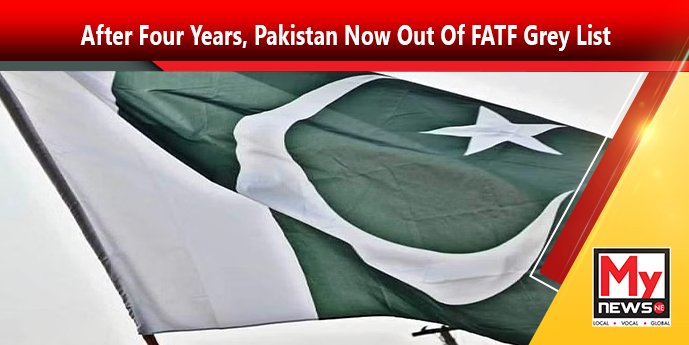After Four Years, Pakistan Now Out Of FATF Grey List
Guwahati: The Financial Action Task Force (FATF) has removed Pakistan from its “grey list” after learning that Islamabad would keep working with the Asia/Pacific Group on Money Laundering to strengthen its anti-money laundering and counter-terrorist financing (AML/CFT) system.
FATF stated that it appreciates Pakistan’s notable advancements in strengthening its AML/CFT regime.
The international agency that monitors money laundering and terrorism financing declared here after its plenary that Pakistan had improved the efficiency of its AML/CFT system and fixed technical issues to adhere to its action plans’ commitments regarding the strategic flaws that FATF had identified.
According to the watchdog, Pakistan “is no longer subject to FATF’s enhanced monitoring process; to continue working with APG to further improve its AML/CFT.”
Pakistan has been included on the watchdog’s “grey list” due to shortcomings in its counter-terror financing and anti-money laundering policies since June 2018.
Its imports, exports, and remittances have all suffered as a result of this greylisting, which has also restricted its access to foreign credit.
The FATF kept Pakistan on its “grey list” at the June plenary and stated that a final decision to remove it will be made following an “on-site” verification inspection.
Pakistan was visited by a FATF delegation later in September.
Pakistan was added to the “grey list” by the FATF in June 2018, which prompted the release of the 27-point action plan. The action plan dealt with preventing the financing of terrorism and money laundering.
The country is forewarned that it might be added to the blacklist by this inclusion on the grey list.
Pakistan was first added on the grey list in 2008. It was later taken off in 2009, but from 2012 to 2015, it was once again subject to intensified surveillance.
The FATF’s governing body is the FATF Plenary. It holds three annual meetings.
The Working Group and Plenary sessions in Paris were attended by representatives of 206 Global Network members and observer organisations, such as the International Monetary Fund, the United Nations, the World Bank, INTERPOL, and the Egmont Group of Financial Intelligence Units.

